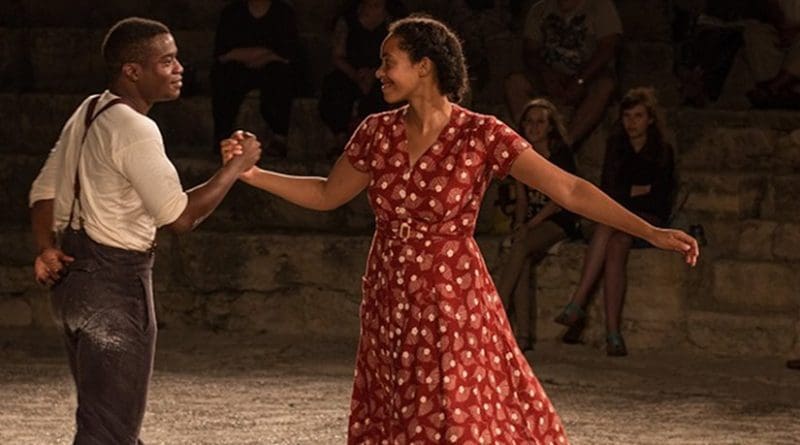Shakespeare’s 400th Anniversary Year Won’t Only Be Celebration Of Dead White Males
The death of most performed playwright in the world is to be marked in Stratford-upon-Avon, London and across the globe this year.
Researchers from the Multicultural Shakespeare in Britain Project at the University of Warwick are set to launch a new online Shakespeare performance database on Jan. 15, 2016 that holds three years of research that documents and contextualizes BAME performers’ crucial yet undervalued contribution to the understanding of Shakespeare – one of the greatest cultural symbol of ‘Britishness’.
The Multicultural Shakespeare project was launched in 2012. Since then, issues of diversity, access and representation have become the center of a national debate. As we enter 2016, Lenny Henry, the Act for Change movement, Equity and so many others are campaigning for more diversity on stage and screen and for more power for black and Asian practitioners behind the scenes.
With nearly 1200 productions, The British Black and Asian Shakespeare Performance Database reveals how over 85 years Shakespeare’s plays have become more multicultural. While BAME performer participation has unequivocally increased, casting patterns have meant that opportunities to play the great Shakespearean leads have remained slim.
The database shows:
BAME performers have been cast most often in Macbeth as one of the three witches.
BAME actors have been cast more often as Laertes, Ophelia, Horatio, Guildenstern and Rosencrantz than as Hamlet. Guildenstern and Rosencrantz have 1% and 2% of the total lines in Hamlet.
BAME performers are more often cast as Hero and Claudio in Much Ado About Nothing than as either of the leads – Hero has 5% of the lines; Claudio has 11% of the lines.
The database is being launched at a special event, ‘In Robeson’s Footsteps: British Black and Asian Shakespeare Now’ at the Tricycle Theatre in London on 15 January 2016.
The performance of In Robeson’s Footsteps (16:00- 17:30), a drama documentary devised by Tony Howard, draws on research interviews with BAME actors and directors across the generations, including Adrian Lester, Mona Hammond, Noma Dumezwemi, Iqbal Khan, Rakie Ayola, Paterson Joseph, Lucy Sheen, and Oscar James.
In addition at the event there will be an opportunity to see the exhibition To Tell My Story, which tracks and illustrates the contribution of BAME performers in Shakespearean theatre over the last 85 years.
Dr Jami Rogers, Research Assistant and Honorary Fellow at the University of Warwick, said, “The British Black and Asian Shakespeare Performance Database is a fantastic resource for a wide audience, celebrating inclusive classical productions. Students, teachers and academics will find it a rich resource for this little understood facet of theatre history. The database also tracks casting patterns and will provide a basis for understanding how cultural stereotypes have sometimes inhibited parity in classical theatre for the same performers the Multicultural Shakespeare project celebrates.”
This event is hosted by the Multicultural Shakespeare in Britain Project (University of Warwick) and Global Shakespeare (Queen Mary University of London/University of Warwick).

